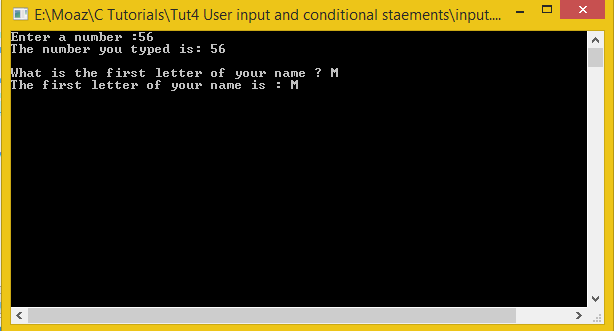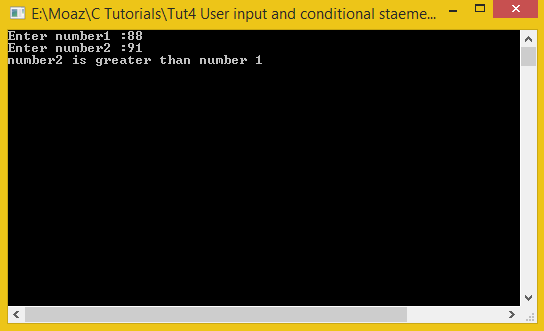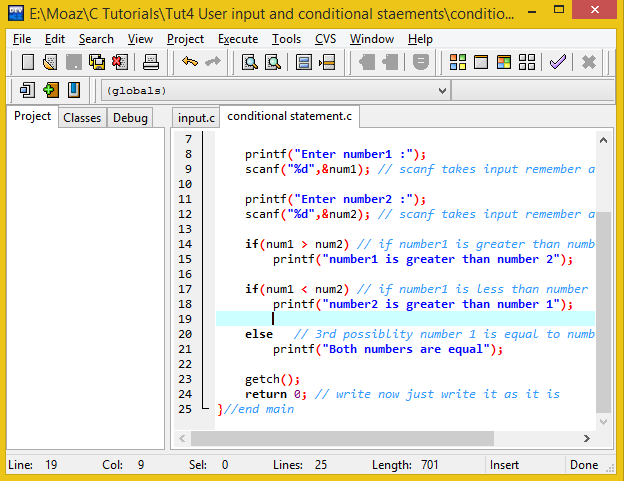User input and Conditional statements
Submitted by moazkhan on Thursday, July 10, 2014 - 19:26.
User input and Conditional statements
In this part you will learn: 1. Taking input from user 2. Conditional statements 3. C syntax 4. Showing output 5. Tabs and new lines In this tutorial I will teach you how take input from user and how to use conditional statements. Basic Step: Open Dev C++ then File > new > source file and start writing the code below.
 Using Conditional statements
File > new source file
The if , else and else if statements in c are called conditional statements. Now we will write a program to compare two numbers using conditional statements.
Using Conditional statements
File > new source file
The if , else and else if statements in c are called conditional statements. Now we will write a program to compare two numbers using conditional statements.

Add new comment
- 298 views

